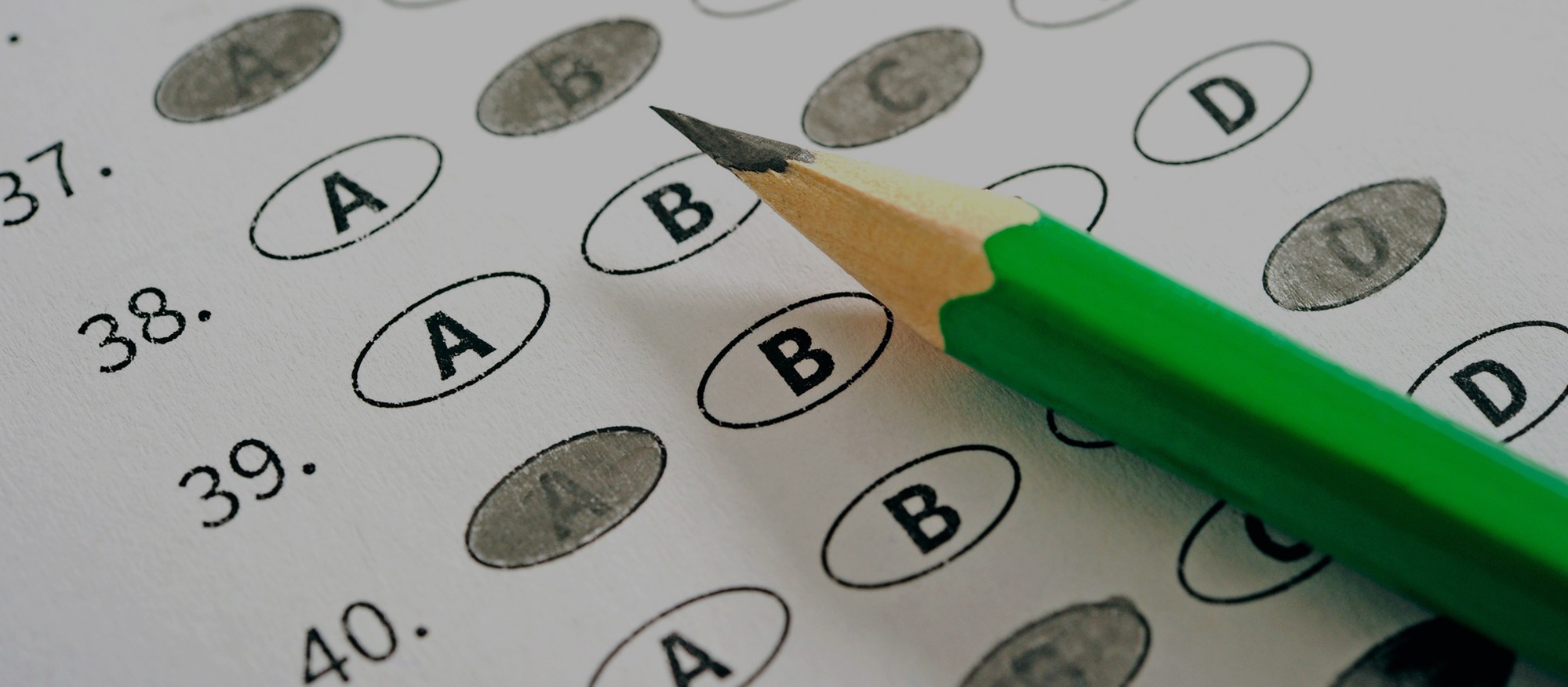ACT vs. SAT: Which One Should You Take?

Both the SAT (Scholastic Aptitude Test) and ACT (American College Testing) exams help measure a high school student’s preparedness for collegiate academics. Answers are compared across all applicants, and tests are scored according to respective SAT and ACT grading tiers. SAT exams are scored on a scale of 1600 total points, with an optional essay. Scores average 1000 and include math, reading, writing, and language elements. Four individual subtests comprise the ACT exam, scored on a 1-36 points scale where the national composite average test score is 20.6.
No matter the exam or exams which each high school student elects to take, the test-taking season is a difficult period for many applicants. Students are often navigating junior and senior-level final exams while learning how to handle an entirely new test format in standardized ACT or SAT formatting.
Stigmas behind tutoring at the high school level are quickly disappearing, as more and more high school students and collegiate preparatory exam applicants accept help in managing study requirements. Many students preparing for collegiate preparatory exams engage in academic tutoring, specifically tutoring for math, physics, and related sciences, to address in-class pursuits while they spend more time studying for SAT and ACT tests. Other high school students take advantage of SAT and ACT-specific tutoring, for expedited college exam preparation while managing high school studies.
What Is the ACT?
Each section of the ACT collegiate preparatory exam is graded on a 1-36 point scale, with all 4 sections averaged to arrive at a single, composite score. At just under three hours — 2 hours and 55 minutes — the ACT exam is fundamentally important to university admissions departments when finalizing applicant acceptance into college programs. The ACT costs $55.00 per exam taken without the writing component, and an additional $15 with the essay component added.
Typically, the ACT gauges English, mathematics, science, and reading aptitude, with an optional writing portion that scores an applicant’s composition capabilities. Exam sections and individual questions are broken down according to strict timing parameters for the ACT, outlined as follows:
- ACT English Exam consists of 75 questions in 45 minutes;
- ACT Science Exam consists of 40 questions in 35 minutes;
- ACT Math Exam consists of 60 questions in 60 minutes;
- ACT Reading Exam consists of 40 questions in 35 minutes.
Look to register for the ACT exam at least five weeks in advance. If you’re unsure how to do so, consult your high school counselor for help and additional testing information.
What Is the SAT?
Segmented into three individual sections — reading, writing and language, and math — the SAT collegiate preparatory exam lasts three hours with a 10-minute and 5-minute break between sections. The optional essay lasts an additional 50 minutes. The exam itself offers an affordable registration fee of $52 without the essay, $68 with the essay included.
Timing parameters for the SAT exam are as follows:
- SAT Reading Exam consists of 52 questions over 65 minutes;
- SAT Math Exam consists of 58 questions over 80 minutes;
- SAT Writing & Language Exam consists of 44 questions over 35 minutes.
The reading and writing-and-language exam sections are worth a combined total of 800 points, which, when combined with the math section’s 800 points, totals 1600 available points. SAT sign-up is simple and streamlined through the online SAT registration portal.
What’s the Difference Between the ACT and SAT?
There are several key differences between the SAT and ACT exams. Though time limits remain approximately the same for each — roughly 3 hours in total — an applicant’s natural abilities tend to better prepare them for one over the other. Changes made to the SAT exam in 2016 simplified the exam structure and rendered the test itself more similar to the ACT exam, with several notable exceptions.
Though the SAT is graded on a 1600-point scale, and the ACT exam offers only scores between 1-36, each exam’s totals can be easily converted into the other exam’s grading scale. For example, a 1000 SAT score ranks as a score of 19 on the ACT. Reference an SAT vs. ACT scoring chart to convert between both exam types. In addition, the ACT exam requires 215 answered questions, while the SAT necessitates only 154 answers.
ACT Math vs SAT Math
There are several fundamental differences between math sections on the ACT and SAT exams. Specifically, the ACT requires 60 math answers over 60 minutes, while the SAT requires two less answered questions and offers applicants 20 more minutes to complete the section. However, ACT students can use calculators on all math portions of the exam; by contrast, the SAT includes both calculator and non-calculator sections, with calculators only allowed during designated portions of the exam.
Learning to ace the math portion of the SAT or ACT exam means more than understanding basic mathematics; it also means understanding how SAT and ACT math questions are phrased, how answers are structured, and how best to allocate your time between questions. That’s why many applicants participate in pre-exam math tutoring — to develop a better grasp of the subject matter while learning what the upcoming collegiate preparatory exam expects of them. Intensive math tutoring sessions during the summer are also offered to students, packaging similar instruction into a smaller time window.
ACT English vs. SAT English
Small distinctions between the SAT and ACT English sections can make big differences in how applicants prepare for each respective exam. For one, the ACT offers distinctive English and reading sections, where 75 English questions over 45 minutes and 40 reading questions over 35 minutes make for intensive exam periods. By contrast, the SAT’s reading section requires 52 answered questions over 65 minutes before a writing and language exam calls for 44 more answers over an additional 35 minutes.
Besides structural differences, the SAT’s English section requires applicants to comprehend and answer 11 questions across four passages, while the ACT English section adds an additional section and associated questions to that total. This means that ACT English is geared toward more of a rapid response test taker, while English questions on the SAT exam often require an increased depth of thought and second-level understanding.
ACT Science
If you know that answering science questions will likely increase your overall exam score, you should likely consider registering for the ACT. This is because only the ACT college preparatory test features science questions: 40 questions across 35 minutes comprise one of the exam’s four sections. Many of the passages offer scientific information, requiring comprehension of provided data. Other questions require that students contribute their understanding of basic science, to choose answers that best satisfy each question.
Even confident applicants deserve to brush up on their science before exam day. That’s why many applicants enroll in physics tutoring, to obtain or restore a full understanding of scientific concepts immediately applicable once the exam begins.
Should You Take the ACT or the SAT?
Ultimately, electing to take the SAT or the ACT exam is a decision only the applicant can make. Sample SAT questions and ACT questions can make this decision easier since students can familiarize themselves with basic question structure and context well ahead of exam day. Applicants can even take a practice SAT exams and full-scale ACT practice tests, oftentimes provided or supported by the respective SAT and ACT boards, to help cement their decisions.
It’s also important to investigate exam requirements for your target schools. Certain universities may require, or at least suggest, one type of exam over another, in which case applicants would want to register for the college’s preferred test. Take into account your natural strengths: applicants with stronger English, reading comprehension, and writing backgrounds typically report stronger ACT exam scores, while math-oriented students typically prefer the SAT exam format. And of course, students preferring science-based questions should consider taking the ACT exam, given its science-specific section.
Math tutoring can help you enhance critical thinking, polish math concepts, and prepare your mind for a full section of algebra, geometry, and other concepts, especially if you’re interested in taking the SAT exam, characterized by both a calculator and non-calculator section.
Is It Worth It to Take Both Tests?
Today, it seems as though more and more high school students are taking both exams, and then submitting the higher-scored test to their university of choice. Exam costs compound when you take both the SAT and ACT exams, especially since many students also take each exam type more than once, to polish their scores on individual sections or revisit the same exam type with renewed expectations.
Ample scholarship opportunities exist for both SAT and ACT-submitted exams, and a majority of well-recognized universities accept both results. Many Ivy League schools are still more comfortable with SAT submissions, given the fact that for a long time the SAT exam was the only available testing format. By contrast, individuals intending to study science at the university level might prioritize ACT efforts, since high ACT rankings can impress admissions departments for a specific school of science. The answer depends on the student, situation, and price tag, but primarily on the intended result.



